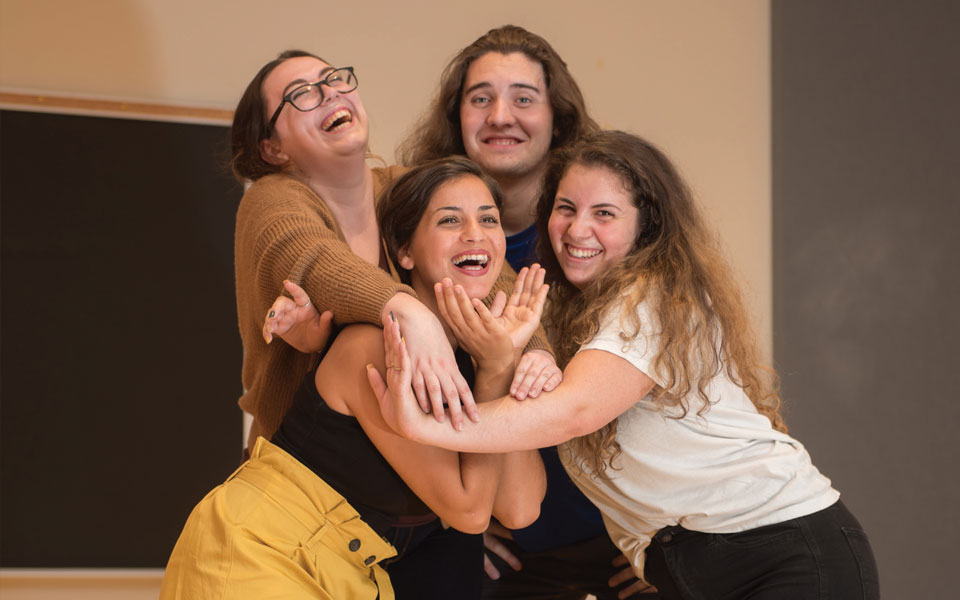
Program Overview & Highlights
- Co-op Opportunity
- Honours 4-Year Program
- Combined Honours Programs Available
- B.A.
Develop your creativity in our drama program where you’ll train for a career in the theatre. Choose a concentration in performance, history and theory, design/technical theatre, or a combination of two or all three. You’ll get hands-on training behind the scenes in community theatre productions and have the chance to earn while you learn with paid co-op. Students love this program so much that many go on to graduate school for further learning and specialization.
Learn More About Our Program
What Lancers Are Saying

Corey Palmer
BA in Drama in Education and Community, BEd in EducationAdmission Requirements
High School Student from Canada
Course Requirements: English/ENG4U (min. avg. 60% [70% for Fall 2026])
Minimum Average: 70%
Minimum Average (Co-op): 80%; 70% minimum in English
Mean Average: 83%
Language Requirements
To review the most up-to-date information on Language Requirements: See language requirements.
Academic Calendars
Career Tracks
- Artistic director
- Artistic producer
- Broadcaster
- Theatre performer
- Comedian
- Stage manager
- Lighting designer
- Playwright
- Film critic
- Project manager
- Public relations officer
- Set designer
- Sound technician
- Stage manager
- Theatre manager